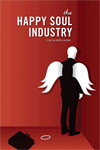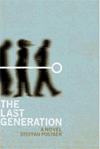Does the spectre of tedium hang over new Bond film or is it just me?
December 8, 2015

License to kill joy?
In my last post post I talked about criticism –be it of films, books or advertising- as a flawed construct. And while I’m now going to critique a new movie I will still try and frame the discussion objectively. My topic is the new James Bond flick, Spectre, which I saw a couple weeks ago. In short, I found it lacking. Good looking, the movie was guilty of something no Bond film should ever be: dullness. My tweet: “Too much GQ and Architectural Digest and not enough Maxim and Vice.” Even the actor, Daniel Craig is on record as being weary of the 007 roll and claimed this would be his last. This was no doubt encouraged by his serious injury midway through filming, which he gamely played through. Still, he looked over it. The whiz bang charisma of his portrayal in Skyfall was long gone. Instead we got a glum and tired James Bond, phoning in the ass kicking. I was not shaken. I was not stirred. Such was my opinion.
Over Thanksgiving, which we always spend with my wife’s family in Kansas City, I looked forward to asking my brother-in-law his opinion of the flick. David is as avid a James Bond fan as I’ve ever known. He is ridiculously passionate about the icon. Yet, I figured even he would agree with me on my assessment.
I figured wrong. David, and frankly everyone at the dinner table, thought Spectre was “fabulous… thrilling… sexy” – everything I didn’t. I was like: “Come on, people. It was almost boring. I was looking at my watch!”
But I got no support.
Fade to black. We are home now. My wife has a cocktail party with a bunch of her new friends from California. I decide to ask them their opinion of the film. Surely, these sophisticated women in Mill Valley would know a dull bond when they saw one.
Once again, I was wrong. They, too, adored Spectre. “Where was the suspense?” I asked. “Where wasn’t it?” they responded. I reiterated my (allegedly) clever Tweet. No reaction. Incredulous, I ranted. They raved. “Even the song was dull,” I muttered, sinking back into the couch.
So, could I have been –gulp- wrong? That’s the thing about opinions: there is no right or wrong. There is just what you got out of it. And clearly a lot of people got something out of Spectre I didn’t.
I don’t have a moral. In my previous post I wrote about my ambivalence to criticism. What is interesting now is the idea that people can experience the same exact thing so damn differently. This is the intangible that critics –if not everyone- almost always forgets, including me: that my eyes and ears lead to only my brain nobody else’s. When we assume our take is the only take we are making a big mistake.
For all its awesomeness, the advent of social media has ruined at least one thing (albeit minor) I used to love: the end-of-the-year list.
There was always something highly addictive about reading my favorite columnist’s top (and especially bottom!) ten choices in music, movies, books and the like. Not anymore. Mostly because I don’t have a favorite newspaper or magazine columnist. And that’s mostly because I don’t have a favorite magazine or newspaper. Not anymore. Now I rip through websites, blogs and magazines like some sort of content zombie. I still get off on lists but not nearly as much as BTI (Before The Internet).
Besides, now I tend to aggregate the results. I look for patterns and tendencies as opposed to details and specifics. I learned this behavior from the web. Take the website Rotten Tomatoes, for example. Here you can peruse countless reviews for any given movie as well as get the cumulative score on its greatness or lacking there of. Big deal you say. Actually it is. Not only has social media diminished the power and value of any one critic it has also made critics out of us all. Reread that last sentence. I’ve emboldened it for you! It is no doubt the most important one in this essay. Thanks to Twitter, Facebook, MySpace, WordPress, Blogspot and countless other entities everyone, and I mean everyone, is now a critic. Therefore, I don’t think end-of-the-year lists are all that interesting, unless, of course, one analyses them for patterns and tendencies!
Reflect for a moment…Remember when you actually gave a shit what Roger Ebert thought about a movie? Or Richard Corliss? Or Rolling Stone? Who? What?
Exactly. Which brings me to my final point and it is not a little one: We have all become a focus group. God help us.








 The Happy Soul Industry
The Happy Soul Industry The Last Generation
The Last Generation